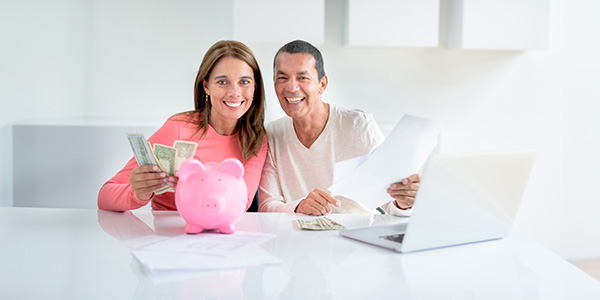Homeowners
Everything You Need to Know About Home Equity Loans
January 3, 2025
Homeowners in need of extra cash may be able to use their properties to keep them financially secure.
You may be able to tap into the value of your home through a home equity loan. These loans often offer lower interest rates than personal loans, credit cards, or auto loans.
If you already have a mortgage, you may be able to take out a second mortgage. If your home is paid off, this would be a first mortgage.
The most popular types of home equity loans included a home equity line of credit, also known as a HELOC, a cash-out refinance, and a reverse mortgage. Reverse loans are available to homeowners ages 62 and older.
Your financial circumstances, your needs, and the amount of money you need, will help you to determine which loan is best for you.
“People sometimes are scared of the idea of borrowing money against their house,” said Ray Williams, executive vice president of the Consumer Direct Division at New American Funding.
“But if your debt is becoming overwhelming or has you stressed out living paycheck to paycheck, then we should take a minute to do the math and see if it makes sense and brings you some relief,” he said.
Should you consider a home equity line of credit?
A HELOC is a flexible line of credit, similar to a credit card. You only pay for the amount of money you use. But instead of borrowing money from a bank, you’re borrowing against your home.
Often borrowers can receive the money they need within a week or two.
The interest payments may be tax deductible. And using a HELOC to consolidate debt and pay off maxed-out credit cards has another advantage: It may help you to boost your credit score.
However, those considering a HELOC should understand that typically these loans have a capped adjustable interest rate. That means monthly mortgage payments can fluctuate up to a certain point over time.
Williams noted that HELOCs are most suitable for small loans.
“If you need only $20,000, a HELOC works,” he said. “But if you need $50,000 to $150,000, it’s more likely better to redo your current first mortgage.”
Why you should consider a cash-out refinance
With a cash-out refinance, you pay off your existing mortgage by taking out a new loan at a higher amount. This allows borrowers to pocket the additional cash.
Similar to HELOCs, homeowners may be able to deduct the interest they pay on the loans off of their taxes if the money is used to fund eligible home improvements.
Borrowers may be able to repay the new loan in the same number of years as the previous loan. This means you don’t have to add additional years to paying off your mortgage.
“Unlike a HELOC, which could be a second mortgage, in a cash-out refinancing, you only make one payment a month,” Williams said. “And the interest will be lower than that of a HELOC.”
Older homeowners may want to consider reverse mortgages

If you’re 62 or older and have substantial equity in your home, there is another option that’s often overlooked: the reverse mortgage.
These loans allow homeowners to borrow against the equity they have built in their homes. The loan doesn’t need to be repaid until the home is sold, the homeowner moves out for a year, or the homeowner passes away.
“It’s similar to a home equity loan, but it doesn’t require a repayment,” said Lorraine Geraci. She is the manager of talent and development of the Reverse Mortgage Division of New American Funding.
How much the homeowner can borrow depends on their age, the value of the home, and current mortgage rates.
Like the HELOC and cash-out refinancing, there’s no restriction on how the money is used. You can buy a different primary residence or a vacation home or take a three-month trip to Tahiti. You may also be able to pay off your existing mortgage.
“There’s a misconception that reverse loans are bad because people think you have to give your home to the bank,” Geraci said. “That’s not true.”
Once the loan comes due, the amount owed is subtracted from the sale price of the home.
“There’s no personal liability for the owner or the heir,” said Geraci.
The heirs can keep the home once they pay off the amount the homeowner took out. They can also sell the property and keep the profits, minus what is owed.
“It’s a way to establish or retain wealth in retirement,” Geraci said.






 Smart Moves Start Here.
Smart Moves Start Here.